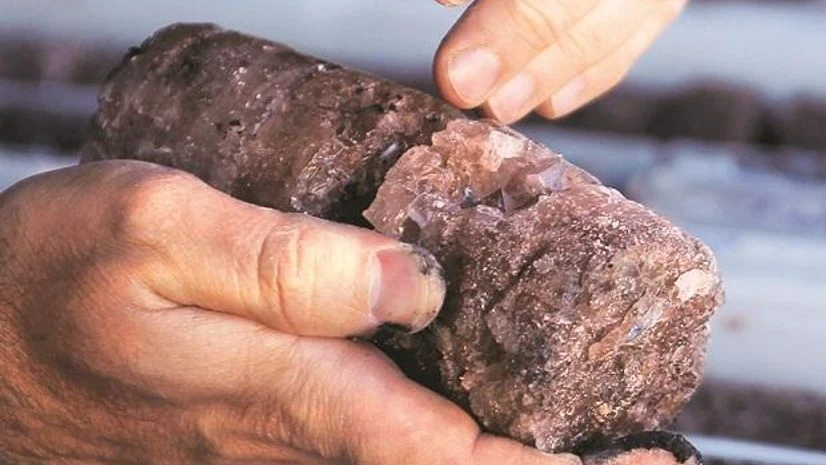[ad_1]
)
India is also strategising to establish KABIL’s offshore office in Catamarca city to coordinate with provincial regulatory authorities
The government plans to enter exploration and development agreements with the Argentine government for five lithium blocks identified by Khanij Bidesh India Ltd (KABIL) in Catamarca province.
The Centre will invest around Rs 200 crore over five years for the exploration and development of these mines, Business Standard has learned.
“Talks are in the final stages, and a proposal has been submitted to the Cabinet Committee on Economic Affairs for approval,” said government officials aware of the development.
Following Australia, this marks India's second attempt at signing a foreign partnership for sourcing critical minerals. In 2022, India signed a memorandum of understanding with Australia's Critical Minerals Facilitation Office (CMFO) to explore five blocks – two for lithium and three for cobalt.
The agreement between India's KABIL – a joint venture company aimed at acquiring and commercialising strategic minerals overseas for supply in India – and Catamarca Minera Y Energética Sociedad Del Estado (CAMYEN), a state-owned mining and energy company in Catamarca, is forthcoming.
India is also strategising to establish KABIL’s offshore office in Catamarca city to coordinate with provincial regulatory authorities.
“Engaging in the exploration and extraction of critical minerals in Argentina requires considerable time and ongoing oversight. Establishing KABIL's offshore office is a strategic step to protect and uphold our interests,” a senior official noted.
Argentina, with 21 per cent of the world’s 98 million tonne lithium reserves according to the United States Geological Survey’s (USGS) Lithium Statistics and Information 2023 report, is second only to Bolivia. These reserves are concentrated in salt flats within Catamarca, Salta, and Jujuy provinces, part of the Lithium Triangle.
India's engagement in Argentina is driven not only by its vast lithium reserves but also by the cost-effectiveness of extracting salt-lake lithium compared to hard-rock mining, making it commercially viable.
India’s pursuit of lithium blocks in Argentina bolsters its aim for self-reliance in clean energy. India initiated its first critical minerals auction on November 29, with two lithium blocks in Jammu and Kashmir and Chhattisgarh available for bidding.
Government estimates suggest the Reasi district block in Jammu & Kashmir holds about 5.9 million tonnes of lithium reserves. The quantity for the Chhattisgarh blocks is unspecified in the auction documents.
Currently, India relies entirely on imports to meet its lithium demand. In FY23, lithium imports amounted to roughly $3 billion (approximately ₹24,900 crore), a 58 per cent increase from FY22, as per Ministry of Commerce and Industry data.
Over 95 per cent of India’s lithium imports come from Hong Kong and China.
Besides Argentina and Australia, KABIL is in talks with countries rich in critical minerals, including Bolivia, Chile, and others.
The agreement for five lithium blocks will further India's goal to achieve net-zero emissions by 2070 and become a manufacturing hub for electric vehicles.
Lithium is crucial in manufacturing lithium-ion batteries, which power devices such as smartphones, laptops, electric vehicles (EVs), and energy storage systems for renewable energy sources like solar and wind power.
Lithium is also used in medical treatments, ceramics, and aerospace technology.
First Published: Dec 24 2023 | 5:40 PMIST
[ad_2]
Source link
